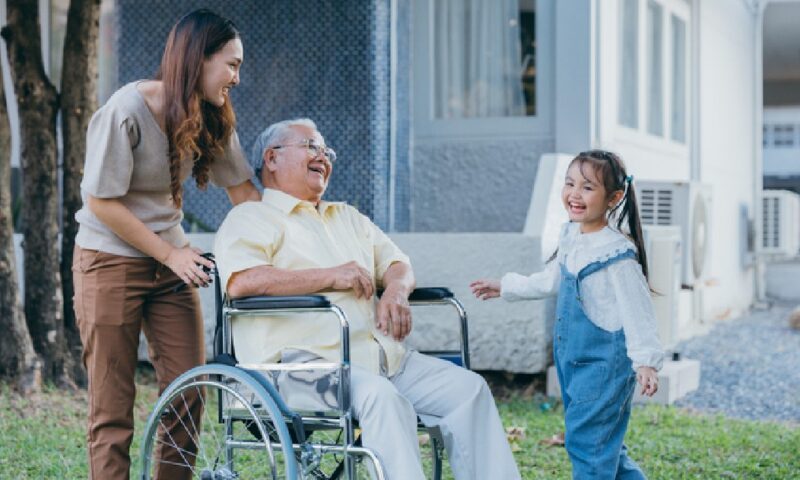(Pictured: About half of family caregivers fit into two categories: They’re women, and they spend 20 hours per week on the duties.)
By Taylor Shurman
About 53 million U.S. adults assist their older relatives, spouses, friends, or neighbors with daily tasks like cooking and dressing. This means one in five Americans is a caregiver.
Seniorliving.org conducted a study of more than 1,700 of these unpaid family caregivers. The research, combined with insights from industry leaders, provide deeper insights into the state of family caregiving, a spokesman said.
Key findings from the study, according to seniorlist.org, include:
- 59 percent of family caregivers are women, who report higher levels of emotional stress, depression, and challenges with balancing caregiving duties compared to men.
- 43 percent of caregivers are the sole providers of care, typically spending 20 hours per week on caregiving duties.
- 53 percent of family caregivers work full-time jobs, meaning they must balance their caregiving and workplace responsibilities.
- 47 percent of caregivers receive no formal support, such as financial aid, counseling, or respite care, despite 88 percent saying they need more help.
- 43 percent of family caregivers report trouble sleeping, and 36 percent report feelings of depression.
- While 65 percent of caregivers haven’t participated in support groups, those who have prefer online forums and Facebook groups over in-person meetings.
Many family caregivers (nearly 1 in 4) care for multiple older adults at once, and over half of those surveyed had cared for a family member or friend for at least three years. While this suggests they may have gained experience and skills, it raises concerns about potential physical and emotional burnout.
The time and tasks involved in caregiving vary widely depending on the care recipient’s needs. Some may be relatively simple, like transportation to medical appointments. Others may be complex medical or nursing tasks, such as medication management or administering injections. AARP reports that nearly 60 percent of caregivers assist with medical or nursing tasks.
The most common reasons older adults require unpaid care are old age (16 percent), mobility issues (12 percent), Alzheimer’s/dementia (11 percent), cancer (6 percent), and mental illness (5 percent).
Source: Seniorliving.org, which provides information and research on topics affecting older adults.
